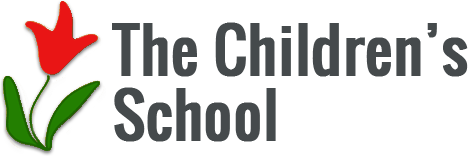With the recent release of the tuition schedule for the 24-25 school year, you’ve likely noticed a 5%-8% increase across classes at TCS. If you found yourself asking why, I’d like to take this opportunity to shed light on where that money is allocated and delve into the high cost of child care, particularly high-quality child care.
Let’s talk about ALL child care
All child care is expensive, even if it’s “cheap”. The President’s Council of Economic Advisers found that higher-income families pay between 6-8% of their income on child care expenses, while families with low incomes pay as much as 31% of their income toward child care. In Boise, full time preschool runs $12,000-$20,000 per year, per child. Click here for tuition comparisons
Even though child care is expensive, childcare providers operate on thin margins and childcare workers receive very low wages – nationwide, a median of $13.22 an hour. A quick Indeed search puts Boise at about that rate. This is lower than almost any other occupation and falls below the living wage in most states. Early childhood education faces a serious financial crisis and monumental workforce challenges nationwide.
And what about The Children’s School?
The Children’s School is on the high end of child care in Boise and yet, we are not charging what it actually costs to support a high quality early childhood education. High quality care is achieved through small class sizes, low ratios, teachers who specialize in early childhood education and a stable staff. All things that make a school high quality directly contribute to the high cost. If you like the numbers, let’s break it down:
22-23 school year income from tuition and child care:
$1,164,398.
22-23 Expenses:
Mortgage: $78,849
Repairs and Maintenance: $30,167 (this was a hard year for our building)
Janitorial: $17,541
Utilities: $10,757
Classroom Consumables: $19,698
Office Supplies: $2,187
Insurance $18,546
Banking Fees: $7,616
Professional Fees: $16,621 (accounting, licenses, accreditation renewal)
Software/Website/Phones: $10,000
Equipment: $1,438
Tuition Assistance: $5,091 (in addition to PTCS provided)
Salaries: $999,577
Benefits: $33,700
Substitute Teachers: $17,000
Payroll Taxes: $82,000
Professional Development: $703 (in addition to PTCS provided)
Total Expenses: $1,340,734
Net Income: -$176,336
In the 22-23 school year TCS received funding from COVID relief and donations from several generous families. This offset the loss, allowed us to make much needed repairs on our building and $62,000 in payroll costs were covered by the COVID wage enhancement grant. All relief funding ended May 2023. In the 23-24 school year when tuition increased by 5%, that went directly to increased salaries for teachers to offset their loss of income from the discontinuation of relief funds.
The Children’s School is in a more financially stable position than many nonprofit organizations as we are mostly funded by tuition rather than heavily relying on grants and fundraising. Additionally, we have a fairly low mortgage payment relative to the amount of property we own- half a city block in the North End would be out of the question for most schools. Even with these advantages, we skimp on facility maintenance and rely on donations, grants, and windfalls to fund any special projects or large scale improvements. Tuition alone does not fully fund the school.
Each year, the Board of Directors and administration takes a hard look at our income and expenses, identifies areas to save if we can, and seeks other sources of income if necessary. Next, we carefully assess the tuition of comparable schools in Boise to establish our pricing. We strive to maintain the delicate balance of providing affordability for families, maintaining the high standards of early childhood education and continued financial sustainability as a whole. Our goal is to offer a competitive rate among our peers, while ensuring that families don’t experience pricing fatigue that could potentially impact our enrollment or their own quality of life.
Amidst the questions surrounding tuition increases, it is crucial to recognize the profound impact your investment has on your child’s education. A robust and dedicated teaching staff, combined with small class sizes and optimal student-teacher ratios, stands as the bedrock of early childhood excellence.
